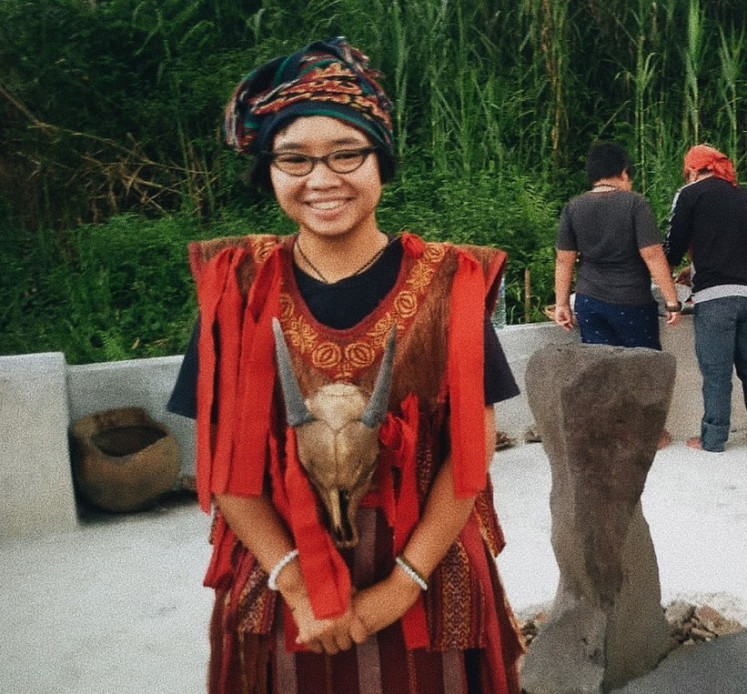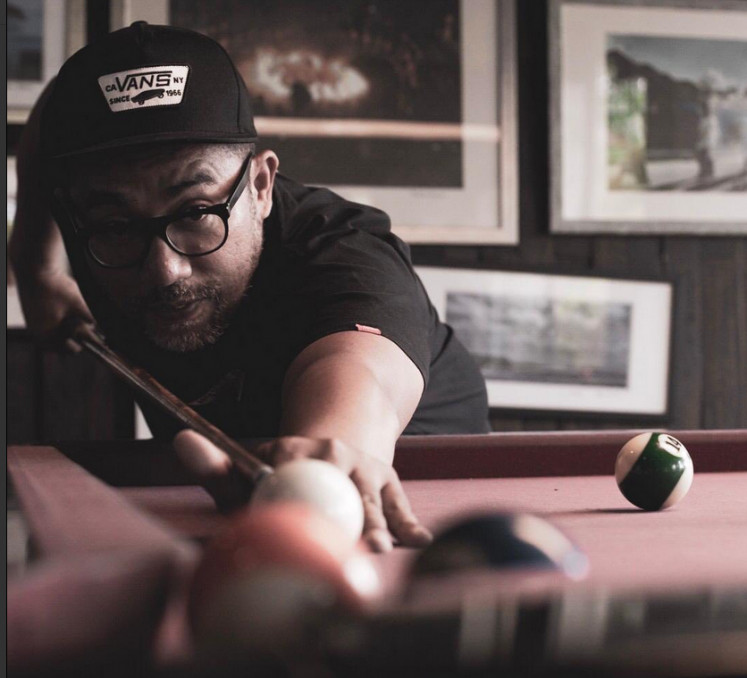Popular Reads
Top Results
Can't find what you're looking for?
View all search resultsPopular Reads
Top Results
Can't find what you're looking for?
View all search resultsSuperstitious minds: Indonesians share their enduring supernatural beliefs
Change text size
Gift Premium Articles
to Anyone
This Halloween, The Jakarta Post delves into superstitions that remain in Indonesian culture
In some western cultures, black cats and broken mirrors are considered bad luck, while four-leaf clovers are believed to offer magical protection and bring good luck. In some parts of Africa, people worship pythons because they believe the snakes bring rainfall and those who violate this are supposed to give the reptile an expensive funeral ceremony. In Indonesia, men have to ask for permission by literally saying phrases such as “excuse me” when urinating in public spaces such as on a tree, in a bush or next to an empty building; otherwise the resident supernatural forces of the site would “bother” them and curse them with a swollen penis.
Yogyakarta-born Yogha Prasiddhamukti Wicaksana said he did it out of manners.
“You’re urinating in places you shouldn’t be, so it makes sense to ask for permission,” the 34-year-old said, “I usually just say it in my head.”
It is one of possibly hundreds, if not thousands, of superstitions commonly believed by Indonesians, which is no surprise since the country is the home of more than 1,300 ethnic groups with diverse cultural backgrounds that gave birth to the country’s wide array of folklores, legends, myths, taboos and even witchcraft.
Some of these superstitions are common, and are shared by many different communities globally, such as how opening an umbrella indoors will cause someone to die, which supposedly originated from an ancient Egyptian belief that doing so—away from the sun’s rays—would anger the Sun God, Ra.
Clipping nails at night will bring death in the family or, at the very least, evil spirits, is a belief that is shared by many countries in Asia such as Japan, China, India, the Philippines and Indonesia.
However, there are quite a lot of superstitions in Indonesia tightly linked to certain local cultures or ancient religions making them unique, weird and at times, harder to make sense of.
Turbulent Tuesdays
Natasha Tontey, a 32-year-old artist from a Minahasan family—an ethnic group native to North Sulawesi—said that the Minahasans believe that Tuesday is a day of contemplation, and therefore unwise to start a project or anything important on.
“In the culture of Minahasa, Tuesday represents day number two, or “a heart that splits” which means a lack of resolution,” she said, “so if you start something on that day, there will be lots of turbulence.”
Natasha recalled some of the bad luck that fell upon her on Tuesdays.
“We were preparing for [an artshow] livestream on a Tuesday, and then suddenly one of the actors had to fly back to Lampung due to family matters,” she said, “I was at the studio praying to Opo Empung (God in Minahasa), and the cigarettes of my offering weren’t all lit up, even though they usually do, and the coffee was foaming.”
Special day: Natasha Tontey, a 32-year-old artist from a Minahasan family, believes that Tuesday is a day of contemplation. (Natasha Tontey) (Personal collection/Courtesy of Natasha Tontey)Cultural rituals are prohibited on Tuesdays, and Natasha always ask her producer not to organize a performance on that day.
“The way I see it, it’s like a mercury retrograde every Tuesday, so if there are glitches, just embrace them,” she concluded.
Interestingly enough, many Javanese also have the same belief about Tuesday. Many areas in Java see public transportations carrying the lowest number of passengers on Tuesday compared to any other day. Quite a few Javanese business owners also close their stores on that day.
Apparently, it all started with a Javanese proverb “seloso - selo selone menungso” (Tuesday is the peak quiet of humans).
Bad dreams
In the village of Siman in Lamongan, East Java, there is a belief that if you are dreaming of defecating, it means you are about to lose something valuable, although this has not happened for the 28-year-old graphic designer Hikmah Prahara, whose extended family comes from said village and still wholeheartedly believe in it.
“I dreamed of defecating, but nothing happened,” Hikmah said.
Cursed family photograph
After a stream of bad luck fell upon his family, Edy ‘Khemod’ Susanto—known as the drummer of the heavy metal band Seringai and also creative director of a film production house—believes that one simply should not invite a romantic partner to join a family picture because it will end the relationship.
“When I was in my 20s, I took my girlfriend at the time to take part a family photograph, and not long after we broke up,” Khemod said, “It has happened to my family three times, once with my brother, once with my nephew and me.”
No photos: Edy ‘Khemod’ Susanto believes that one simply should not invite a romantic partner to join a family photo before they officially become a family member. (Courtesy of Edy Khemod) (Personal collection/Courtesy of Edy Khemod)“The strange thing was, the relationships received full blessing from the families, and we all thought a wedding was on the cards, but then the relationship just ended,” he continued.
“I think it’s like jinxing it, you know? Since then, we have never had anyone’s romantic partner take a picture with the family.”
Site marking
Harnia Agustin, a 24-year-old who lives in Batang regency in Central Java said her family would always leave personal objects at a place they had stayed that they would not like to come back to.
“When I was in the 11th grade in 2014, I was hospitalized for two nights due to typhus. And when we were about to leave, my mother purposely left my towel and a piece of shirt in the cabinet next to the bed,” Hernia said, “When I asked why she did it, she said so I won’t have to come back to the hospital.”
Now, Harnia does it out of habit when she has to stay somewhere she would not like to return to.
“I travel to other cities a lot because of work, and when I come across hotels that are dirty, haunted or have bad service, I leave my towel or handkerchief,” she admitted, “In my mind, if I leave a personal belonging, I won’t have to come back there.”
According to Harnia, it is a belief that has been passed down from her great-grandparents, and that her grandmother used to serve for the Cirebon kraton (palace). While it is not confirmed, it is widely known that many Javanese connected to the kraton practice kejawen, a Javanese religious tradition combining metaphysics, mysticism and other esoteric doctrines.
Not going away anytime soon
Belief in the supernatural has always been strong in Southeast Asia, Indonesia included.
“There are so many ghosts in Java alone, let alone all over Indonesia,” Toetik Koesbardiati, a Doctor of Philosophy and lecturer in the faculty of social and political sciences of Airlangga University said, “These beliefs and superstitions are passed down for generations.”
While some of these superstitions become no longer relevant over time, those which are associated with negative consequences will not go away anytime soon.
“Who wants to take the risk of getting into accidents or having unfortunate things happen for not abiding by some of these beliefs?” Toetik said, “People would rather play it safe, it’s not about superstition anymore, but it’s about being safe.”
“For example, when a driver passes a bridge, he would honk his horn,” referring to a belief that quiet spots such as bridges have supernatural residents, and honking is a polite way to ask for permission, Toetik continued, “He doesn’t have to do it, but it doesn’t take a lot of effort. And the most important thing is the relief he feels after doing it.”













